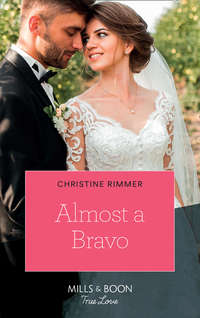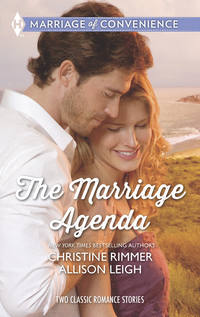
Полная версия
The Bravos: Family Ties: The Bravo Family Way / Married in Haste / From Here to Paternity
“But this would be on the Bravo Group’s nickel, right? You’d get a new facility and they would pay for it?”
“Yeah. So?”
“Well, that sounds like a hell of deal to me.”
“How many ways can I say I’m not ready yet?”
Danny took another pull off his beer and set it down with care. “Okay. What’s going on?”
She put a lot of attention into thoroughly drying her hands. “What do you mean?”
“You seem really … jazzed about this. Really nerved up. And angry, too.”
“Well, I am angry. I’ve told that man no four times now, including today. And what does he do? He sends me jewelry.”
Danny’s honest brown eyes held hers. “He’s after you.”
“Didn’t we already establish that?”
“I’m not talking about KinderWay right now,” Danny said. “I mean you.” Cleo had no idea what to say then, so she kept her mouth shut. Danny added, “Come on. What guy in his right mind wouldn’t be after you?”
She let out a hard breath. “Oh, Danny …”
“And why else would he be sending you jewelry?”
She couldn’t hold his gaze and found herself looking down, studying the rounded toes of her ballet flats. “It doesn’t matter. I’ll just send it back.”
“You want me to talk to this guy?”
“No.”
“You sure?”
She lifted her head and straightened her shoulders. “Yeah. I’m sure.”
“You want to … go out with him?”
“Of course not.”
Danny smiled. Slowly. “Well, then. We got no problem here, do we?”
She could never resist that smile of Danny’s. She felt the corners of her own mouth lifting in response. “You know what? You’re right. We’ve got no problem at all.” She turned, hung the towel on the rack and went back to cutting up the salad.
Danny finished his beer and helped himself to a second one. A few minutes later they sat down to eat.
After the meal, they cleaned up the kitchen, working smoothly together, two parts of a well-oiled machine. Then Cleo made popcorn and they adjourned to the living room to catch a movie on pay-per-view.
Cleo shucked off her flats and cuddled up close to Danny, enjoying the strength in his muscular arm when he draped it across her shoulders, thinking that this was a great guy and she’d been lucky—so lucky—to find someone like him.
Someone so sweet and kind, someone who understood her and was always gentle with her and who never, ever tried to boss her around. Someone true and steady and down-to-earth.
Someone totally unlike some people she could mention …
When the movie ended, as the credits were rolling, Danny pulled her closer, tipped her chin up and pressed his lips to hers. She kissed him back warmly.
But it was after ten by then and she was tired from the long workday—and the added stress of having to face down Fletcher Bravo.
Danny sensed her mood instantly. He always did. “Tired, huh?”
“Yeah. I guess I am….”
She walked him to the door and they shared another kiss. He asked her out for Friday night.
She said, “I’d love to.”
“Pick you up at seven?”
“I’ll be ready.”
She stood in the open doorway, watching as he went down the front walk and got into his perfectly restored ‘57 Chevy. He waved as he drove off, and she shut the door, locking it, turning back to lean on it with a sigh—and spotting Fletcher’s gift again. She’d have to pack it up and call his office to find out where to send it.
But not tonight.
Tonight she was putting Fletcher Bravo, his unwelcome offer and his unwanted gift completely from her mind.
Ten minutes later she crawled into bed. She drifted quickly off to sleep.
Her dreams that night were thoroughly erotic ones. Danny wasn’t in them.
The next morning—Wednesday—she woke up furious. At Fletcher Bravo.
Before she headed for KinderWay, she pushed the little blue box deeper into the packing popcorn and sealed up the flaps with heavy tape. She got the address of Impresario out of the phone book and printed it neatly on the box. She made it in care of Fletcher’s secretary, whose name, she remembered, was Marla Pierce. On the way to work she took the box by the post office and mailed it. She felt a whole lot better once the damn thing was out of her hands.
At KinderWay, Kelly, her assistant, asked her how the meeting at Impresario had gone.
“The important thing,” she told Kelly, “is that it’s done. I told Fletcher Bravo in no uncertain terms that we’re not interested in his offer.”
Kelly laughed and pretended to fan herself. “That Fletcher Bravo. I’ve seen the pictures of him in the newspaper and NightLife magazine. Total hottie. Those sexy, scary gray eyes of his … Yum. He could make me an offer any day. You can bet I wouldn’t refuse.”
Cleo was still feeling good that his gift was out of her hands and things were finally settled with him. She joked, “I should have let you handle him.”
“Oh, yeah. You should have. I’d have handled him and then some.”
After that, Cleo did her best to put Fletcher Bravo completely out her thoughts. Friday night, she and Danny went out for dinner and a movie. Saturday, they went to a car show. Sunday, she took the day for herself. She restocked the pantry and straightened the house and went to the mall for a little leisurely shopping. If occasionally the memory of compelling pale eyes crept into her mind, she ordered the image right back out again.
Monday, at a little after ten, with daily classes well under way and the children in each of the three KinderWay classrooms absorbed in the study of language arts, Cleo escaped to her office to get a little paperwork done. The phone rang, and since Kelly was helping out with the three-year-olds that morning, Cleo answered it herself.
“You sent my gift back. Cut me right to the core.”
Her pulse picked up speed and a truly exasperating warm shiver went skittering through her. “You shouldn’t have sent it.”
“You didn’t even open it.” He was faking an injured tone for all he was worth. “You don’t like Tiffany’s?”
“Of course I like Tiffany’s. Everyone likes Tiffany’s.”
“But you sent it back. Should I try Cartier?”
She felt kind of breathless. Kind of eager and expectant. Dumb. Really, really dumb. She instructed with great firmness, “Do not send anything more.”
Fletcher chuckled, a low, far too sexy sound. “No problem. And now we’ve got that settled, do you recall the prospective KinderWay design I showed you last Tuesday?”
She admitted warily, “Of course.”
“I made the changes you wanted.”
The cojones on this guy were truly phenomenal. “I didn’t want any changes. I was only …” She wasn’t sure how to go on.
He prodded, “You were only what?”
“Look. It was a terrific design. I got a little carried away, that’s all. But I never said I wanted any changes. Why would I? As I did say several times, I’m not going to open another KinderWay at this time. And Fletcher, you can’t just—”
“Never tell me I can’t. It only encourages me.”
“But you—”
“Cleo, listen.”
Patience, she thought. Calm. And serenity. “Okay. What?”
“I made the changes and I had it built.”
For a moment she was sure she hadn’t heard right. But then she understood—or so she thought. “A scale model. You’ve had a—”
“No. Not a model.”
“Not a model?” she echoed lamely, still not believing that he could mean what he seemed to be saying.
“That’s right. I’ve had the facility built. To your specifications. In the location we spoke of, off Hotel Impresario.”
That was impossible. Wasn’t it? “But it’s only been six days since—”
“I want you to come and take a look at it.”
“I still don’t believe that you could possibly have—”
“How about one o’clock? We can have lunch.”
“I swear, if you interrupt me again, I’m hanging up this phone.”
That gave him pause. At least briefly. Then he said, “I apologize. It’s a failing of mine. Impatience.”
“Curb it.”
He was smiling. She just knew it. He said softly, “On the plus side, I’m a man who gets things done.”
“Well. Apparently.” She still couldn’t believe it. He’d built a new KinderWay?
“You really need to see it, Cleo.”
She shouldn’t. And she knew it. But he was right. She had to see this. “Strictly business,” she warned.
“Agreed. My office. One o’clock.”
Chapter Three
They had lunch at Impresario’s five-star Club Rouge, with its light-studded, red-silk-draped ceiling and glittering Swarovski crystal chandeliers. There was champagne. Cristal, 1988. An excellent year, or so the wine steward claimed.
Cleo decided she’d allow herself a glass. Fletcher toasted to the future of KinderWay.
Why not? KinderWay would have a future, regardless of its connection with Fletcher Bravo and the Bravo Group. She touched her glass to his. “Bright lights, late nights,” she said automatically—and then wished she hadn’t.
He set down his glass. He didn’t say anything, but she could see in his eyes that he found her toast out of character.
“My mother used to say that,” she admitted grudgingly. “And please don’t try to tell me you had no idea my mother was a showgirl.”
“All right, I won’t.” He said it so … mildly.
And that really bugged her. They both knew he was far from a mild kind of guy. She set down her own flute and accused, “You’ve had me checked out. You know everything about me—or at least everything that a good detective could dig up. You have a profile on me, a … dossier, or whatever you want to call it.”
“And that bothers you?”
“Yeah. It bothers me, though I get that you want to be sure about whoever you do business with. Especially when it comes to something as important as your child’s education.”
He sat back in the plush white satin chair. “You’ll be relieved to know you checked out just fine.”
“Not that I asked to be checked out. Not that I came to you.”
“You grew up around the gaming industry. I think you know that the procedure’s the same no matter who makes the original approach.” He picked up his flute and sipped in a thoughtful way. “Cleopatra. It’s an interesting name to give a kid.” She only looked at him, tight-lipped. One corner of his fine mouth kicked up in a rueful smile. “It’s called conversation. And it’s not going to kill you to try making a little of it.”
Cleo knew she was being snippy and she ought to snap out of it. After all, she’d agreed to have lunch with him. It wasn’t as if he’d forced her to be here.
She picked up her champagne again and drank. It really was delicious. “You would have to know my mother. She came here in the late sixties, from New York City by way of L.A. A trained dancer with big dreams who’d never managed to get much of a start in the movie business or on Broadway. Her given name was Leslie. Leslie Botts.”
“Ouch.”
Cleo couldn’t help smiling. “Not exactly a name to conjure with. She had it changed legally.”
“To Lolita Bliss.”
“That’s right. She was famous in her day—in a minor kind of way, I mean. But then, you already know that. She worked at most of the old casinos, the top ones. The Flamingo, the Stardust, the Sands. She was tall and gorgeous and she knew her stuff. She loved the entertainment business. When she had me, she had no doubt that I was born to follow in her sequined shoes. She named me Cleopatra. She said that ‘Cleopatra Bliss’ was going to look just grand on a marquee. She used to tell me I would conquer the world. I was three when she enrolled me in my first ballet class. Sometimes we didn’t have food in the house, but there was always money for tap lessons and gymnastics.”
“And you turned your back on all that to open a school.”
“That’s right.”
“Was your mother okay with that?”
“She died when I was nineteen. She never knew I chose a different career than the one she had planned for me.”
“Would she have been disappointed?”
“To say the least—but I like to think she’d have gotten over it eventually.”
“And your father?”
She turned her crystal flute by the stem. “My mother raised me without a father—and didn’t your detective tell you that?”
One dark brow lifted. “More or less.”
She chuckled, though not really with humor. “I thought this meeting was supposed to be strictly business.”
“It is.”
“Then why all the personal questions?”
“I’m interested in you.”
Now why did those words send a naughty little thrill zipping through her? “My mother never would tell me who my father was.”
“Why not?”
“See? You’re getting way, way too personal.”
He didn’t appear the least apologetic. “The way I look at it, I can’t lose by asking. If you give me answers, I’ve got more information than I had before. If you don’t, well, I’m no worse off than I was in the first place.”
She took another small sip of bubbly—and told him a little more of what he wanted to know. “My mother knew a lot of men. She preferred the rich and powerful. High rollers, preferably whales.” A whale, in casino terms, was a gambler who could afford to lose millions. She went on, “Wheeler-dealers. She liked a player who was playing with a nice fat bankroll. A lot of her men were already taken, if you know what I mean.”
“Married.”
“That’s right.”
“You make her sound like a heartless home wrecker.”
“Do I?” Cleo frowned. “Well, as I said, there were a lot of men. But heartless? Uh-uh. She was … passionate and glamorous and she loved living large. She was always falling in love and then getting her heart broken. She just couldn’t seem to stop herself from hooking up with the wrong kind of guy.”
“But you’re not like that.” Was he being sarcastic?
She couldn’t tell—and, she reminded herself, his attitude didn’t matter to her in the least. “That’s right. I’m not like my mother. When I look down, I see two feet firmly planted on the ground.”
“Did you ever try to find your father?”
“Not exactly.”
“Now what does that mean?”
She smoothed the napkin she’d already laid in her lap. “I don’t think I’m going to answer that one. Which is fine, right? Leaves you no worse off than before you asked the question.”
He leaned a little closer, those pale eyes seeming to see right down to the center of her. “You found him,” he said at last with an absolute certainty that sent another shiver running down her spine—this one not nearly so warm as the shivers before it. “Your father is Matthew Flint.” Matthew Flint was a Las Vegas legend. He’d been building supercasinos in the eighties, back when the biggest place around was the MGM Grand. And yes, he was Cleo’s father.
She demanded, “Why are you asking me when you already know?”
“I’d like to hear it from you, that’s all.” She probably shouldn’t have told him. It didn’t concern him in the least. But still she found herself explaining, “My father found me. In my mother’s hospital room the day before she died. He’d heard she had pancreatic cancer. By then, she’d been through both chemo and radiation. The tumor hadn’t shrunk much and cancer was all through her body. She was wasted down to nothing and she’d lost all her beautiful blond hair. She hated that the most. She was always so proud of her hair….”
He prompted softly, “And your father?”
“The word got out she wouldn’t make it. My father knew it was his last chance to see her. So he paid her a final visit. I was there at her bedside when he showed up.”
“And you’ve kept in touch with him since then.”
“As you know, he already has a family. A wife. Two sons. I try to keep it low-key, you know? But now and then we get together.”
“I understood that he backed you when you started out.”
“Yes. He’s the main reason I was able to open my own preschool at the age of twenty-five.” She found herself thinking that she ought to turn the tables on him and ask a few questions about his absentee father, Blake Bravo. Like almost everyone else in Las Vegas, Cleo had read the articles about the fabulous Bravo brothers and their swift rise to prominence. Always there was mention of their father, the notorious sociopath who had faked his own death at the age of twenty-six and then gone on to romance an endless number of gullible women—with the classic result: Blake had left illegitimate children all over the good old U.S. of A.
Fletcher said much too softly, “We have a lot in common.”
And before she could argue, let alone get him talking about his father, a waiter appeared and set their green-bean-and-crayfish salads in front of them.
Fletcher gave the waiter an approving nod. “This looks wonderful, Armand.”
“Enjoy, Mr. Bravo.” The waiter beamed them a big, bright smile.
“Armand is a single father.” Fletcher sent Cleo a meaningful glance. “He has a three-year-old son, a little boy named Alain who is very much in need of a quality preschool.”
Armand nodded, a quick dip of his dark head. “My Alain is a bright child. He needs a challenge. Day care isn’t giving it to him.”
“But then,” Fletcher chimed in right on cue, “a good preschool can be so expensive—not to mention that there’s often a waiting list. Plus, there’s the difficulty of getting the kids to and from where they need to be. If we could provide a preschool here, on-site, at a significantly reduced rate to our employees, it could make a lot of difference to a number of hardworking, concerned parents like Armand.”
“Ah,” said Cleo as if she hadn’t heard all this in their previous meeting a week before. The waiter nodded again and left them. She looked at the man across from her. So brilliant. So dynamic. “So sneaky,” she said.
He picked up his fork. “It’s true. When I want something, I pull out all the stops to make sure I get it.” His look said that KinderWay wasn’t all he wanted.
She felt that sexy, shimmery sensation beneath her skin—and willfully ignored it. “How many more employees with needy preschool-age children will I be meeting this afternoon?”
“A few,” he replied with an easy shrug. He tipped his head toward her plate. “Eat your salad. It’s excellent. More champagne?”
“One glass is my limit—especially around a world-class operator like you.”
After lunch they went through the glittering casino at the heart of Impresario, a casino housed in a giant red windmill several stories high. From outside, the massive vanes of the windmill turned, crisscrossed with thousands of bright golden lights. Inside, visitors looked up at a wide dome painted the color of night and studded with a thick blanket of gleaming artificial stars.
As they crossed the busy casino floor, Fletcher stopped now and then to introduce her to certain employees: a dealer, a security staffer, a cocktail waitress. Not the least surprisingly, they all had young children. And they all worked long hours. They really needed a service like the one she could provide….
They left the casino and emerged onto a fully enclosed, cobbled imitation-Parisian street. As they strolled along between the bright-colored, shuttered facades of fake buildings, she told him, “You are shameless.”
He answered without the slightest hesitation. “You bet I am.”
Cleo had suspected she would be impressed with the facility he’d managed to have built in such an impossibly short period of time. But impressed, as it turned out, was too mild a word.
The play yard surrounded the classrooms, so any children who went to school there would look out on a garden—a garden landscaped in succulents and other plants that would thrive in an arid climate. There were just enough patches of grass to make it inviting. Bougainvillea climbed the high stucco fence, softening it, and there was a large playground, complete with jungle gym, slides and a giant-size sandbox. He’d even included several drought-resistant trees: magnolias, sweet gums, red maples.
The Olympic-size pool—dug, but not poured yet—had its own fence, for safety. Fletcher showed her where the separate boys’ and girls’ cabanas, each with showers and restrooms and grooming areas, would go.
He led her inside the main building, from one classroom to the next. Each was just as they’d discussed that day in his office, with large central areas, generous supply closets and accessible learning stations. The many chalkboards and expanses of cork walls for pinning up displays weren’t installed yet, but they would be up tomorrow, he said. Each class had its own storage and coatroom, with nice big cubbies for every student. Finally he took her down a hallway to the administration area and she saw the room that would be her office—if she agreed to his plans.
Which she wasn’t going to do.
Was she?
Somehow, as the afternoon sailed by, it got harder and harder to remember all the reasons she’d taken a firm stance against opening a KinderWay at Fletcher Bravo’s resort.
“After you.” He pushed open the door to the director’s office for her.
She went in. Across from the door, a big window looked out on the play yard. She crossed to it. As she stared through the glass, it seemed she could almost hear childish laughter, see the happy kids swarming the slides, hanging all over the giant jungle gym and the big wooden play structure, spinning on the carousel, swinging on the swings, crawling through the tube tunnels that snaked around the sandbox….
“You approve?” Fletcher asked. She turned to face him. He stood several feet away, beside the wide, well-made desk. He put his lean hand on the desktop. “Italian walnut. Nice clean lines. I thought you might like it.”
She told him honestly, “It’s beautiful. Ideal. And I wouldn’t have believed it was possible. All this. So quickly …”
“Anything’s possible. With a good plan, the right people—”
She cut in. “—and enough money.”
He shrugged. “That goes without saying.”
“Well. I’m … amazed.”
He dropped his gaze and for a split second he almost seemed shy. “Good.”
And she was in big trouble here. In a moment she’d be saying yes to his offer. How could this have happened? “Fletcher, I really think—”
He cut her off for the first time that afternoon. “I’d like you to meet my daughter before you make your decision.”
But I’ve already made my decision, she thought. She didn’t say it, though. Somehow, right then, she just couldn’t. Right then, to say it would have been too cruel somehow.
Clearly this meant a great deal to him. Much more than she’d imagined the first time she’d met with him. During that other meeting—was it only last week?—she’d been certain that his commitment to KinderWay would never be more than temporary at best.
But this office, that play yard, the open, welcoming classrooms he’d just led her through …
He might have had it all built with remarkable speed, but none of it seemed temporary. Far from it.
She said, “The years go by fast. Your little girl will grow right up and out of here. What would happen to KinderWay then?”
“We’d have a contract. You’d be in charge here. I have a strong suspicion you’d make certain that the Bravo Group held up its end of our commitment to the program.”
She almost smiled. “No doubt about that.”
Those pale eyes gleamed. “So it wouldn’t be my commitment that mattered, would it?”
“When you put it that way, no. It wouldn’t.”
He ran his palm over the desktop again. “Do you want children of your own, Cleo?”
The question seemed far too personal. Still, she answered him truthfully. “Yes. I’d like about a dozen kids. But that’s probably going to be impractical, so I’ll settle for two or three.”
Something happened in his eyes. She wasn’t quite sure what. He said, “When you have kids, things change. You … see things differently. Before Ashlyn came to live with me, I hardly gave a thought to the child-care needs of the people who work for me. But now I find I don’t work at optimum level if I’m worried about Ashlyn. So I thought …” He let the sentence trail off as if he knew she could finish it for him.








